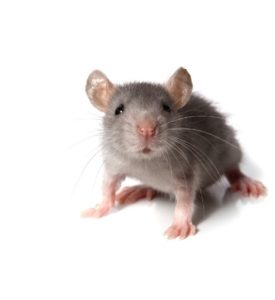Rodents, including mice, rats, and squirrels have perpetually growing teeth. For this reason, chewing is a primary pastime of the rodent home invader. Your household wires are a convenient and available chewing material when mice or rats build nests behind walls or in the attic.
Cold weather encourages mice, rats, and squirrels to come indoors to human spaces. Prepare for rodent entry into your home this winter — and protect your home’s electrical system — by following the tips given here.
- Understand the Damage Rodents Can Do
Experts claim that the offspring and subsequent generations of a single pair of rats can number a half-billion rats over the course of three years. Mice are also prolific breeders. You may think one or two mice aren’t a big deal, but one mouse can become hundreds of mice in a very short time.
When rats, mice, and squirrels chew the protective covering on wires, they expose the bare metal surfaces of the wires. Bare wires and wires that are bundled together can become extremely hot when exposed by chewing. The heat can inflame insulation and wood framing.
Wiring damage and related fire potential can be hidden behind walls and under attic insulation. In fact, experts suspect that rodents are the culprits in one-fourth of all fires that start without known causes.
Rodents also chew the protective covering around grounding and power-supply wires. Mice and rats chew on electrical cords attached to appliances and other devices. Circuit-breaker issues become a problem when rodents disrupt electrical currents. Risks of fire increase wherever appliance wiring is chewed and damaged.
- Know the Signs of Rodent Infestation
Rodents leave tell-tale signs of their presence. From an electrical standpoint, you may experience flickering lights or strange behavior from appliances. For example, your microwave display may be intermittently wonky or your appliance circuit breaker may trip.
Other electrical-related signs of rodent damage may include:
- Visible gnaw and bite marks on wires
- Scratching, squealing, and scrambling behind walls
- Nests and debris near or on wires
- Rodent droppings near wiring runs and outlets
- Computer and modem issues or failure
- Repeated game-console crashes
If grounding or supply lines have been compromised by rodents, you may notice dimmed lights when compressors kick on. For example, when your refrigerator or air conditioner cycles, the light bulbs in your rooms will flicker and dim for a moment.
Over time, rodent damage causes electrical surges and reductions in the current fed to your home’s wiring and appliances. The fluctuations in electric current damage appliances and will fry compressors over time.
- Remove Rodent Temptations and Entry Points Before Autumn
After calling in a rodent-eradication crew to rid your home of a rat or mouse infestation, you need to address the reasons why your home became infested in the first place. Preventing rodents from climbing around in your walls and attics is vital before cold temperatures hit.
The best prevention strategy for avoiding rodent-related wiring damage is to prohibit entry to your home and clean up materials that are attractive to rodents. Understand that mice can fit into spaces only 1/4-inch wide and tall, while rats can squeeze into 1/2-inch-diameter openings.
Your open dryer vent, window-frame cracks, and attic-vent openings are easy pathways for rodents. Rats and mice can also gain entry through:
- Vents without hardware cloth
- Gaps between framing and foundation or roof
- Openings in weather stripping
- Gaps under entry and garage doors
- Cracks between bricks
Before cold weather sends rodents scurrying for warm nesting spots in your home, go over the outside of your residence with a fine-tooth comb. Hire someone or do the work yourself to ensure that all gaps, cracks, and openings into your home are sealed and secure.
Securely tighten electrical switch plates and outlet covers inside and outside of your home. These wall, floor, or ceiling openings allow rodents easy access to runs of wiring.
Remove sources of pooling water that mice and rodents like to have near their nesting sites. Clean up debris and pet food areas that attract rodents.
- Hire a Professional Electrician to Check and Repair Wiring
If you suspect that rodents have damaged your household wiring, contact a licensed electrician right away. Licensed electricians have the training and tools to diagnose wiring issues and perform safe, code-compliant repairs. Rodents may not be the cause of an electrical issue found during a wiring inspection, but the electrician uncovers other hidden hazards in your wiring.
You can’t simply open the wall and remove and replace a damaged section of chewed wire the way you can remove and replace a damaged section of plumbing pipe. Generally, a licensed electrician removes and replaces an entire run of wire, even if only a section is damaged. Special connections and checks must be done to keep wires insulated and safe.
A licensed professional checks all of your home’s wiring for rodent damage. He or she can add supports to sagging wires that rodents have used for travel. After making repairs and reinforcements to your electrical system, the electrician performs multiple tests on your home’s circuits to ensure that your wiring is delivering the right amount of power throughout your home.
If you suspect that rats, mice, or squirrels have chewed your home’s wiring, contact A to Z Electric Company as soon as possible. We repair rodent-damaged wiring in residences throughout the greater Chicago region.

